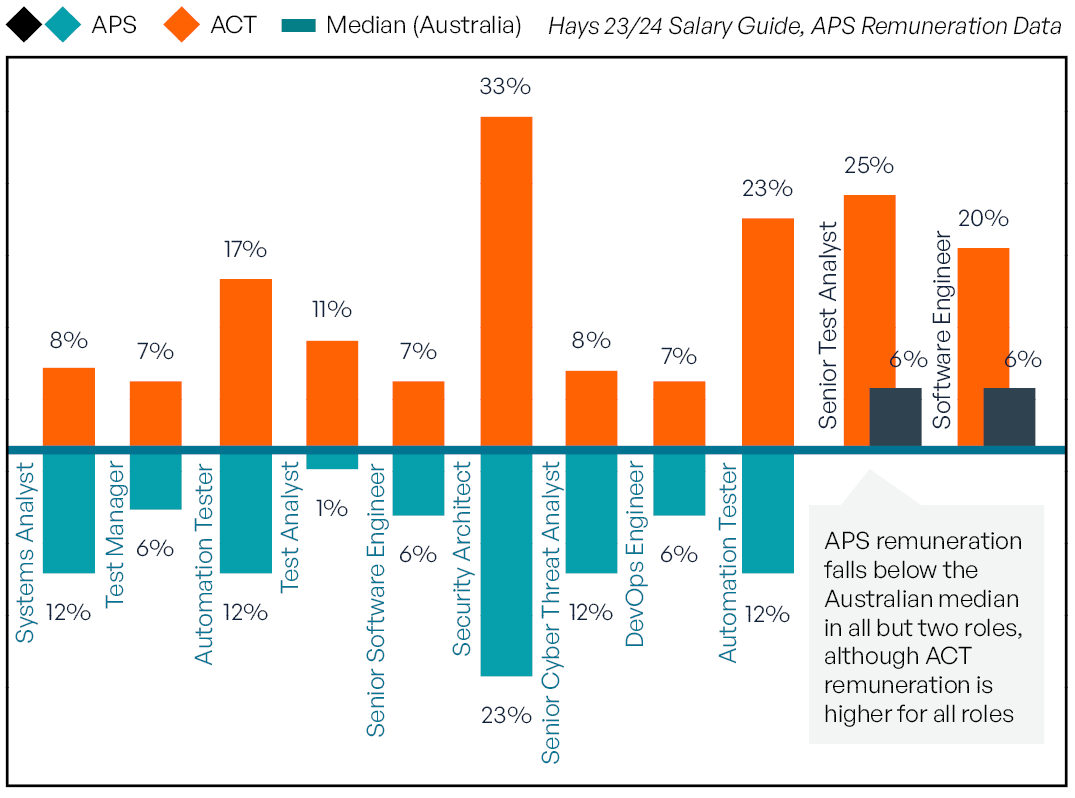Most of the national digital talent is not in Canberra
Canberra-centric hiring is driving up digital talent costs.
The APS is creating an internal talent war, increasing competition and cost. Nearly 60% of the digital talent in the APS is Canberra- based,1 whereas only 4.8% of national talent is in Canberra.2 This significant imbalance drives up costs and limits workforce availability, necessitating a strategic shift to ensure the APS remains competitive and capable of attracting toptier talent, while not overpaying by national standards.
APS continues to miss out on a wider pool of talent
Limited local supply forces the APS to compete fiercely for a small pool of professionals. A cyber security analyst in Canberra typically earns $140k,3 whereas an APS cyber security analyst salary is typically just over $100k.3 Contractor rates are generally higher within the ACT, which offers an opportunity for the APS to leverage savings by looking outside the ACT.
Figure 1: Remuneration Disparity – APS vs. ACT vs. Australian Median

-
Figure 1: Data table
Breaking the Canberra bottleneck requires a digital location strategy
To address these challenges, the APS will need to exploit regional salary differences and embrace contemporary work arrangements like remote work. Despite many roles being location-flexible, 40% of APS job ads remain ACT-exclusive.4 By diversifying job advertisements and promoting remote work, the APS can enhance its Employee Value Proposition and attract talent from across Australia.
A digital-focused location strategy, aligned with the APS Location Framework Principles, could guide when to offer remote work versus cluster talent. Clustering has proved effective both globally (Silicon Valley) and locally in foster digital expertise, driving innovation, and address high-security role challenges.
-
Questions for agency consideration:
-
Exploring whole-of-APS opportunities:
Case Study 3: APS Academy Campus
Case Study 6: Australian Bureau of Statistics Location Strategy
- Australian Public Service Commission, APS Employment Database custom request RFI 2086, June 2024
- Australian Bureau of Statistics, Labour Force, Australia, Detailed (EQ8), November 2024
- Hays Australia, Hays 2023/24 Salary Guide, 2024
- Australian Public Service Commission, Remuneration Data customer request RFI 3107, 2025
- Australian Public Service Commission, APSjobs vacancies 23/24FY custom request, 2024